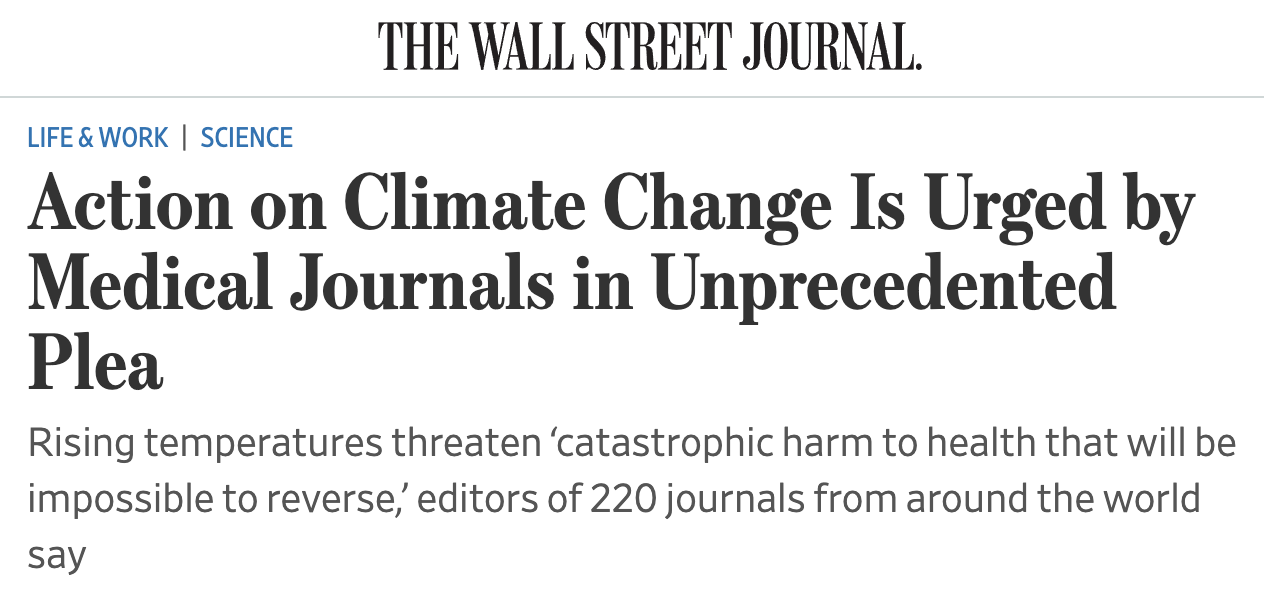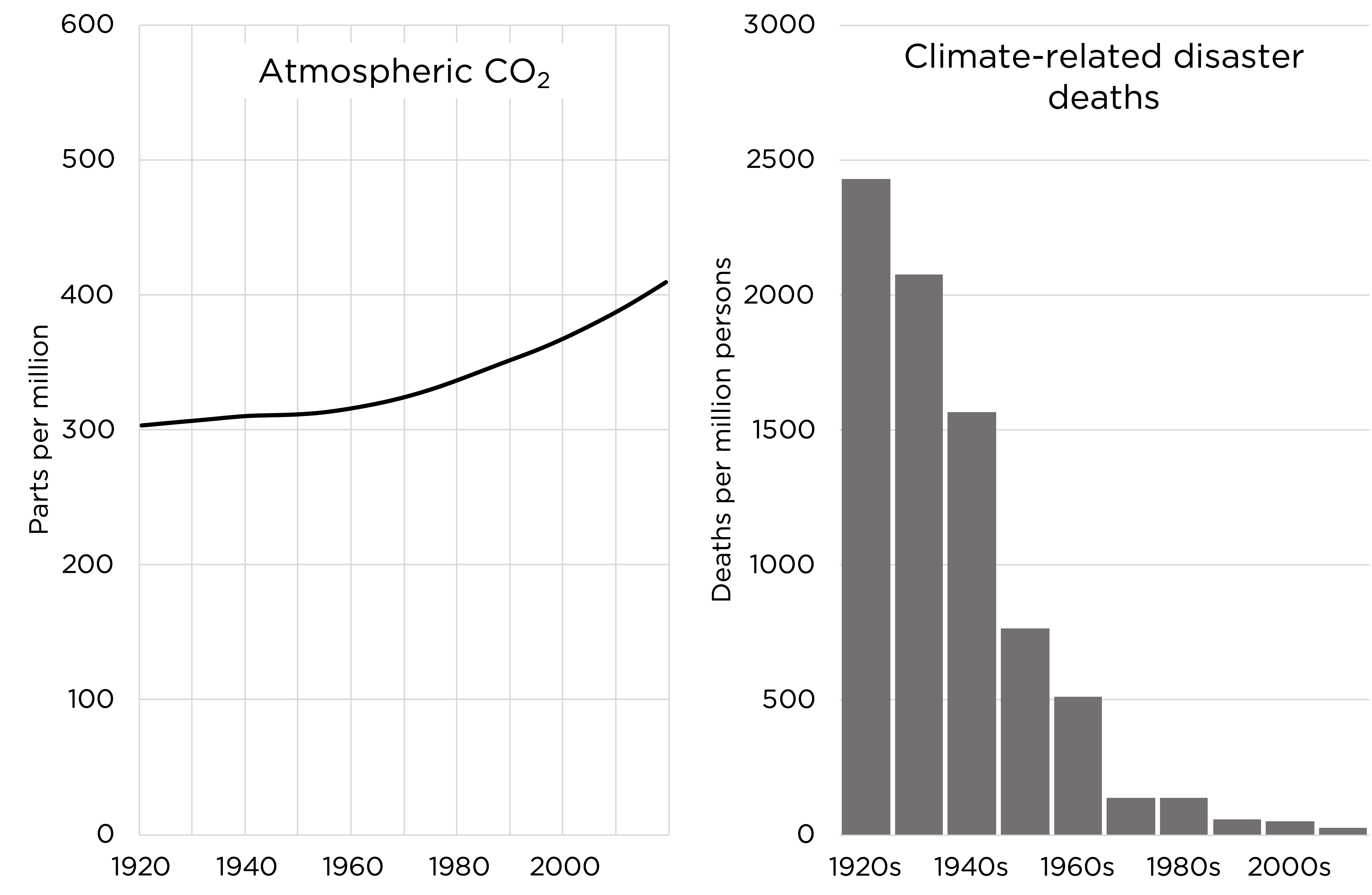Today is a dark day for the medical profession. The editors of 220 medical journals, with 0 expertise in energy and climate, have called for the rapid elimination of fossil fuel use--a course of action that would rapidly increase the biggest cause of health problems: poverty.

-
The #1 cause of health problems in the world is poverty, and an absolute requirement for alleviating poverty is low-cost, reliable energy—most of which, for the foreseeable future, needs to come from fossil fuels.
-
The main reason global CO2 emissions are rising is because billions of people in the developing world are bringing themselves out of poverty by using fossil fuels to power factories, farms, vehicles, appliances--as well as hospitals and medical equipment.1
-
The developing world overwhelmingly uses fossil fuels because that is by far the lowest-cost way for them to get reliable energy. Unreliable solar and wind can’t come close. That’s why China and India have hundreds of new coal plants under construction.2
-
We know that lower incomes are associated with worse health outcomes since income impacts things like our ability to afford healthy food, preventative health care, quality health insurance, and costly medical treatments.
-
It is appalling that 220 medical journals are calling for rapid, poverty-increasing, health-destroying reductions in fossil fuel use in the name of climate change—whose main health risk, heat-related death, is a far smaller problem than cold-related death.3
-
Human beings are impacting climate, but there is no climate crisis. In fact, using low-cost, reliable energy from fossil fuels we have made ourselves far safer from climate than ever--and we have made every aspect of our lives better.4

- Please write to any medical journal that published the deadly editorial--such as The Lancet and The New England Journal of Medicine --and tell them to retract and apologize for it. They are helping advance fossil fuel elimination policies that will shorten billions of lives.
References
-
Zhao et al. (2021)
Bjorn Lomborg: Climate change and deaths from extreme heat and cold↩ -
Alex Epstein - Talking Points on the So-Called Climate Crisis
For every million people on earth, annual deaths from climate-related causes (extreme temperature, drought, flood, storms, wildfires) declined 98%--from an average of 247 per year during the 1920s to 2.5 in per year during the 2010s.
Data on disaster deaths come from EM-DAT, CRED / UCLouvain, Brussels, Belgium – www.emdat.be (D. Guha-Sapir). Population estimates for the 1920s from the Maddison Database 2010 come from the Groningen Growth and Development Centre, Faculty of Economics and Business at University of Groningen. For years not shown, the population is assumed to have grown at a steady rate.
Population estimates for the 2010s come from World Bank Data.